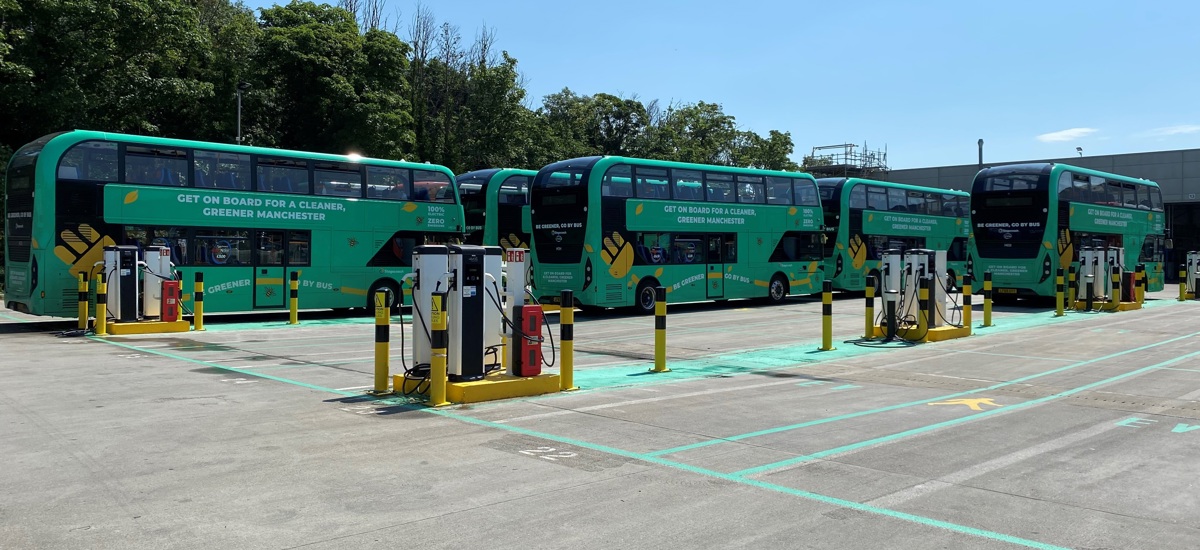Stagecoach’s newly opened green mass transportation scheme in Manchester is being powered by Centrica’s Electric Vehicle (EV) enablement solution.
Centrica Business Solutions has provided bus charging infrastructure for Stagecoach which is delivering one of Europe's largest single investments in electric buses, after securing £6.9m in support funding from the Department of Transport’s Ultra Low-Emission Bus Scheme (ULEB).
A total of 32 fully electric double-decker e-buses have been introduced on routes in Manchester, with a further two also live in Cambridge.
The Enviro EV400 bus is a joint venture between Alexander Dennis, which delivered the chassis, body and internal furnishings, while the batteries and drive train were provided by BYD. Each has a range of up to 190 miles and capacity to carry around 80 passengers.
The e-bus fleet operates two key high frequency services connecting Manchester city centre, Manchester Airport, five hospitals and two universities, saving 920,000 litres of diesel a year and reducing annual CO2 by 2,400 tonnes.
The buses are equipped with two charging points and each charger has twin 40kW AC feeds. When combined, the 80kW supply means the buses can be recharged in just three and a half hours.
Centrica Business Solutions led the design and delivery of the charging infrastructure project which includes a new 6.6kV HV timed connection, 2MVA transformer, on site solar generation and charger energy management system. The system is built with expansion in mind, enabling Stagecoach to scale their energy needs, when further routes are electrified.
Stagecoach is the UK's biggest investor in hybrid-electric bus technology, investing more than £1billion in new greener buses over the past decade.
Centrica Business Solutions developed a dynamic charging schedule which means Stagecoach can access lower energy costs, and take advantage of surplus energy on the grid, ensuring the cost for upgrading their supply was minimised.
-
Michael Pullan, Senior Communications Manager, Centrica
